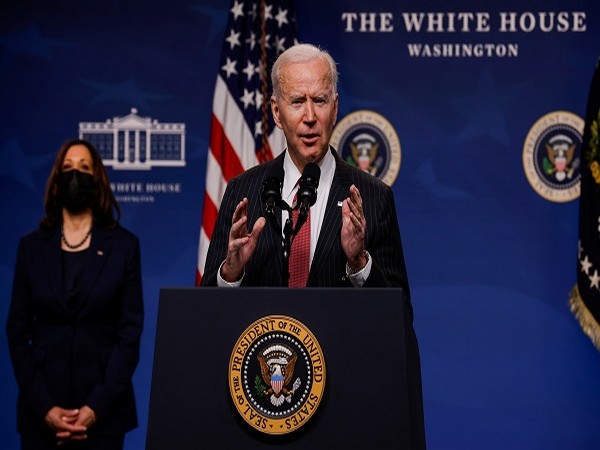Biden reverses Trump's designation of Houthis as terrorists
Joe Biden's US Secretary of State Antony Blinken last Friday, recognizing the dire humanitarian situation in Yemen, announced the reversal of former President Trump's designation of Ansarallah (the Houthis Movement) as a foreign terrorist organisation and specially designated global terrorist group. The decision comes into effect on 16 February.

Nicosia: Joe Biden's US Secretary of State Antony Blinken last Friday, recognizing the dire humanitarian situation in Yemen, announced the reversal of former President Trump's designation of Ansarallah (the Houthis Movement) as a foreign terrorist organisation and specially designated global terrorist group. The decision comes into effect on 16 February.
Two weeks before stepping down, President Trump, designated Houthis as a terrorist group, disregarding the fact such a decision could lead to the death of thousands of starving Yemenis. UN Secretary-General Antonio Guterres had stressed a few days earlier that Yemen was "in immediate danger of the worst famine the world has seen for decades."
Many international humanitarian organisations, such as "Save the Children" had made it clear that the decision would be catastrophic for countless children and their families in Yemen. Aid organisations argued that they have no choice but to deal with the Houthis, who are the de facto government in 80 per cent of Yemen, and that the designation would put them at risk of prosecution in the United States. Trump's decision already has had a chilling effect on humanitarian workers and importers of food, who would be risking prosecution if their goods fall into Houthis hands.
Also Read |
White House authorises President's daily Briefing for Biden
Announcing the reversal of the designation, Antony Blinken said: "We have listened to warnings from the United Nations, humanitarian groups, and bipartisan members of Congress, among others, that the designations could have a devastating impact on Yemenis' access to basic commodities like food and fuel...By focusing on alleviating the humanitarian situation in Yemen, we hope the Yemeni parties can also focus on engaging in dialogue."
The new US administration made it clear that, although Ansarallah was removed from the terror blacklist, three of the movement's key leaders would remain under sanction. Furthermore, it stressed that it does not forget Ansarallah's "malign actions and aggression, its crimes and repression of the people of Yemen and the attacks against US partners in the Gulf."
Earlier in the week, President Joe Biden announced that the US would end its support for the Saudi-backed offensive operations in Yemen, including a freeze on arms sales to the Kingdom, but stressed that the US would continue to support the Kingdom, as it continues to face attacks on its soil.
Also Read |
Top secret: Biden gets access to President's Daily Brief
Sarah Leah Whitson, Executive Director of Democracy for the Arab World, says that "like the economic sanctions and terrorist designations applied to Iran, Venezuela and Cuba and entities within them, the State Department's designation of Ansarallah has nothing to do with an impartial assessment of the facts on the ground or merits of such a policy. Instead, it has been deployed as an economic tool of warfare against international nemeses in the hopes that they will say uncle to US demands and give up power. Every one of these targeted governments remains in power, while the sanctions against them have only harmed ordinary people who have little to no say in what their governments do or do not do."
There is no doubt that Biden's decision to revoke the Houthis' designation has prevented the acceleration of the humanitarian catastrophe in Yemen, but the situation of famine in Yemen, the poorest Arab country, with about 30 million people, continues to be critical.
As David Miliband, President of the International Rescue Committee, points out "the designation of Ansarallah would have done nothing to tackle terrorism and everything to make humanitarian aid and commercial traffic impossible. The next steps are to raise aid flows, negotiate a permanent ceasefire, and get the diplomatic process moving to establish a sustainable political settlement." (ANI)
 Dynamite News
Dynamite News 